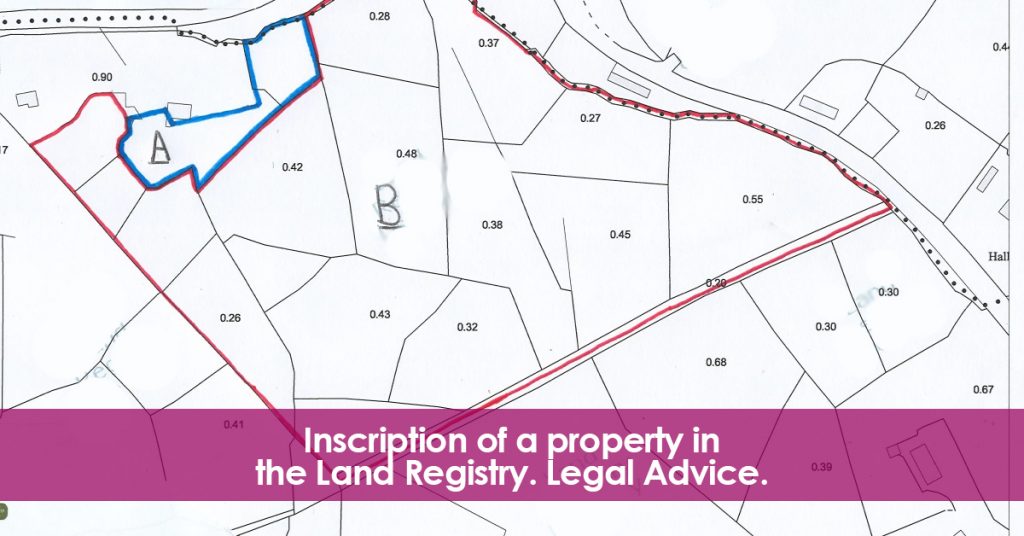Although it may seem strange, in Spain there are many properties that are not registered in the Land Registry. Particularly in the case of older, rustic properties How is this even possible? Could a property that has been paying Property Tax (IBI) for several years not be registered? In today’s article we analyze all these questions. We also explain the most common mechanism of inscription of a property, for the first time, in the Land Registry.
Registration by double title. Article 205 of the M.A. Requirements.
The Mortgage Act (M.A) contemplates three different procedures to register a property for the first time. However, given the complexity and extension of the matter, in this article we will focus on the most common method. The registration “by double title”, regulated in art. 205 of the M.A. What are its specific requirements?
1. Firstly, naturally, it is necessary that the property has not been previously registered in favor of another person.
2. Secondly, two public deeds transferring the property must be presented to the Land Registry. This means, two notarial deeds. It can be a deed of sale, a deed of inheritance, etc. But it is mandatory that they are public deeds. Private contracts are not valid.
3. At least one year must have elapsed between the two.
4. Finally, the description of the property in the two deeds must be identical to the one in the Cadaster.
Further steps in the procedure: registration, notification to adjoining neighbours, edicts, etc
Once all the documentation has been presented to the Land Registry, if everything is in order, the property will be registered for the first time. After this, there are only two more steps:
– On the one hand, the owners of the adjacent land registry and cadastral properties must be notified. That is to say, the owners around the property to be registered must be informed.
– On the other hand, the registration must be made public. This will be done through the publication in the Official State Gazette (by means of edicts).
Effects of the inscription: Is it definitive? Art. 34 and 207 of the M.A.
Very important. Two years must elapse after this first registration for it to be considered “definitive”. Until that happens, the registration will be “provisional”. What does this mean? The person who registered the property will appear as its owner and will be able to transfer it. However, if a third party with a better right to the property appears during this period, he or she could attack the inscription.
Practical example of inscription by double title.
Let us use a practical example. John inherits a property from his deceased father. During the inheritance, he discovers that it is not registered in the Land Registry. A year and a half later, he decides to sell it to a third party. Could the buyer register the property in the Land Registry? In principle (an assuming the descriptive identity coincides with the Cadastre) the answer is Yes. The first title would be the public deed of acceptance of inheritance. The second title, the public deed of sale. However, the inscription of the property in favour of buyer won’t be “definitive” until 2 years later.
At White-Baos we are experts in real estate and Civil law. If you have any queries regarding the inscription of a property in the land registry, matters related to purchases and sales, etc., please do not hesitate to contact us. We will study your case and offer you expert advice on the subject.
The information provided in this article is not intended to be legal advice, it simply conveys information related to legal issues.
Carlos Baos (Lawyer)
White & Baos.
Tel: +34 966 426 185
E-mail: info@white-baos.com
White & Baos 2022 – All Rights Reserved.
